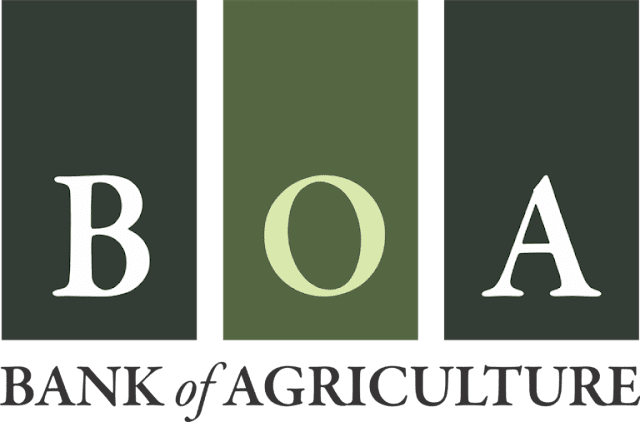In a landmark move to address Nigeria’s pressing food security challenges, the Bank of Agriculture (BOA) and the African Export-Import Bank (Afreximbank) have signed a monumental $1 billion financing agreement. This transformative deal, formalized during a high-profile ceremony in Lagos, Nigeria, aims to revolutionize the country’s agricultural sector by providing critical funding to enhance food production, support smallholder farmers, and promote sustainable agribusiness. The partnership underscores a shared commitment to tackling Nigeria’s food insecurity, reducing dependence on imported food, and fostering economic growth through agricultural development.
Background: Nigeria’s Food Security Crisis
Nigeria, Africa’s most populous nation with over 230 million people, has grappled with food insecurity for decades, exacerbated by a combination of factors including rapid population growth, climate change, insecurity in agricultural regions, and inadequate investment in farming infrastructure. According to the Food and Agriculture Organization (FAO), approximately 26.5 million Nigerians faced acute food insecurity in 2024, with projections indicating worsening conditions in the absence of bold interventions. The country’s heavy reliance on food imports, coupled with volatile global commodity prices and a weakening naira, has further strained its economy, making locally produced food increasingly unaffordable for millions.
The agricultural sector, which employs over 70% of Nigeria’s workforce, contributes significantly to the nation’s GDP but remains largely underdeveloped. Smallholder farmers, who account for the majority of agricultural production, face significant hurdles, including limited access to credit, outdated farming techniques, and insufficient infrastructure for storage and transportation. These challenges have hindered Nigeria’s ability to achieve self-sufficiency in food production, despite its vast arable land and favorable climatic conditions.
Recognizing these systemic issues, the Nigerian government has prioritized agriculture as a cornerstone of its economic diversification strategy. Initiatives such as the Anchor Borrowers’ Programme and the establishment of agricultural development zones have sought to modernize the sector, but funding constraints have limited their impact. The BOA-Afreximbank deal represents a bold step toward overcoming these financial barriers and unlocking Nigeria’s agricultural potential.
Details of the $1 Billion Deal
The $1 billion financing agreement between BOA and Afreximbank is a strategic partnership designed to inject much-needed capital into Nigeria’s agricultural value chain. The funds will be disbursed through the Bank of Agriculture, Nigeria’s foremost agricultural financing institution, which has a mandate to provide affordable credit to farmers and agribusinesses. The agreement is structured to support a wide range of initiatives, including the provision of loans to smallholder farmers, the development of agro-processing facilities, and the enhancement of agricultural infrastructure such as irrigation systems and storage facilities.
The deal was signed by the Managing Director of BOA, Mr. Alwan Ali Hassan, and the President of Afreximbank, Professor Benedict Oramah, during a ceremony attended by senior government officials, industry stakeholders, and representatives of international development organizations. The event highlighted the growing collaboration between African financial institutions and national governments to address pressing developmental challenges through innovative financing models.
Under the terms of the agreement, Afreximbank will provide the $1 billion facility in tranches, with funds allocated based on specific project milestones and performance metrics. The financing will be channeled toward priority areas identified by BOA, including crop production, livestock farming, aquaculture, and agro-processing. A significant portion of the funds will also support the adoption of modern farming technologies, such as mechanized equipment, high-yield seeds, and precision agriculture tools, to boost productivity and efficiency.
Objectives of the Partnership
The primary objective of the BOA-Afreximbank partnership is to enhance Nigeria’s food security by increasing local food production and reducing reliance on imports. Nigeria currently spends billions of dollars annually on food imports, including staples like rice, wheat, and fish, which could be produced locally with adequate investment. By providing farmers and agribusinesses with access to affordable credit, the deal aims to scale up production of key crops and livestock, thereby stabilizing food prices and ensuring greater availability of affordable food for Nigerians.
Another key goal is to empower smallholder farmers, who form the backbone of Nigeria’s agricultural sector. These farmers, often operating on less than two hectares of land, face significant challenges in accessing credit due to stringent collateral requirements and high interest rates. The BOA, with support from Afreximbank, plans to roll out tailored loan products with flexible repayment terms to enable these farmers to invest in inputs such as fertilizers, seeds, and equipment. By addressing the financing gap, the partnership seeks to improve the livelihoods of millions of rural farmers and reduce poverty in agrarian communities.
The agreement also emphasizes the development of agro-processing and value addition, which are critical to maximizing the economic benefits of agriculture. By supporting the establishment of processing facilities for crops such as cassava, rice, and maize, the partnership aims to reduce post-harvest losses, create jobs, and increase Nigeria’s export potential. Afreximbank’s expertise in trade finance will play a pivotal role in helping Nigerian agribusinesses access international markets, thereby boosting foreign exchange earnings.
Strategic Importance of the Deal
The BOA-Afreximbank partnership is a significant milestone in Nigeria’s quest for food security and economic self-reliance. It aligns with the broader objectives of the African Continental Free Trade Area (AfCFTA), which seeks to promote intra-African trade and economic integration. By strengthening Nigeria’s agricultural sector, the deal contributes to the AfCFTA’s vision of creating a single market for goods and services across the continent, with agriculture as a key driver of economic growth.
Afreximbank’s involvement in the deal underscores its growing role as a catalyst for development in Africa. The bank, established in 1993 to promote trade and investment, has increasingly focused on agriculture as a priority sector, recognizing its potential to drive inclusive growth and poverty reduction. Through initiatives such as the African Trade Gateway and the Pan-African Payment and Settlement System, Afreximbank is working to create an enabling environment for African businesses to thrive in a competitive global market.
For Nigeria, the partnership with Afreximbank represents an opportunity to leverage external expertise and resources to address longstanding challenges in the agricultural sector. The Bank of Agriculture, established in 1973, has a long history of supporting farmers but has often been constrained by limited funding and operational inefficiencies. The infusion of $1 billion from Afreximbank will enhance BOA’s capacity to deliver on its mandate, positioning it as a key player in Nigeria’s agricultural transformation.
Impact on Smallholder Farmers
Smallholder farmers, who produce over 80% of Nigeria’s food, stand to benefit significantly from the BOA-Afreximbank partnership. Access to affordable credit will enable these farmers to invest in high-quality inputs, adopt modern farming techniques, and expand their operations. For instance, the funds could support the purchase of tractors, irrigation systems, and improved seed varieties, which have been shown to increase crop yields by up to 50% in some cases.
The partnership also includes capacity-building initiatives aimed at equipping farmers with the knowledge and skills needed to succeed in a rapidly evolving agricultural landscape. Training programs on best practices in farming, financial literacy, and market access will be rolled out in collaboration with agricultural extension services and development partners. These efforts are expected to enhance the productivity and resilience of smallholder farmers, enabling them to withstand challenges such as climate change and market volatility.
In addition to financial and technical support, the deal will facilitate the creation of farmer cooperatives and clusters, which can improve access to markets and bargaining power. By aggregating their produce, farmers can negotiate better prices and reduce transaction costs, thereby increasing their income and improving their standard of living.
Broader Economic Implications
The BOA-Afreximbank partnership has far-reaching implications for Nigeria’s economy beyond the agricultural sector. By boosting local food production, the deal will help reduce Nigeria’s food import bill, which has been a significant drain on foreign exchange reserves. In 2024, Nigeria spent an estimated $5 billion on food imports, a figure that has contributed to the country’s trade deficit and currency depreciation. Increasing domestic production of staples like rice, maize, and poultry will not only save foreign exchange but also create opportunities for export to neighboring countries.
The partnership is also expected to create thousands of direct and indirect jobs, particularly for youth and women in rural areas. The development of agro-processing facilities, for instance, will generate employment in areas such as packaging, logistics, and marketing. This aligns with the Nigerian government’s goal of reducing youth unemployment, which stood at over 40% in 2024, according to the National Bureau of Statistics.
Moreover, the deal has the potential to stimulate growth in related sectors such as manufacturing, transportation, and retail. For example, increased agricultural production will require more inputs such as fertilizers and packaging materials, creating opportunities for local industries. Similarly, improved storage and transportation infrastructure will enhance the efficiency of food supply chains, benefiting both producers and consumers.
Challenges and Considerations
While the BOA-Afreximbank partnership holds immense promise, its success will depend on effective implementation and the ability to overcome systemic challenges in Nigeria’s agricultural sector. One major concern is the issue of insecurity, particularly in northern Nigeria, where banditry, kidnapping, and communal conflicts have disrupted farming activities. The government and its partners will need to address these security challenges to ensure that farmers can safely access their fields and transport their produce to markets.
Another challenge is the need for robust monitoring and evaluation mechanisms to ensure that the funds are used effectively and reach the intended beneficiaries. Past agricultural interventions in Nigeria have been plagued by issues such as mismanagement, corruption, and elite capture, which have limited their impact. To avoid these pitfalls, BOA and Afreximbank must establish transparent and accountable systems for disbursing and tracking the funds.
Additionally, the partnership must address the issue of climate change, which poses a significant threat to agricultural productivity. Erratic rainfall, prolonged droughts, and flooding have become increasingly common in Nigeria, affecting crop yields and livelihoods. The funds should be used to promote climate-smart agriculture practices, such as the use of drought-resistant crops and efficient irrigation systems, to build resilience against environmental challenges.
Stakeholder Reactions and Future Outlook
The BOA-Afreximbank deal has been widely hailed by stakeholders in Nigeria’s agricultural sector as a game-changer. The Minister of Agriculture and Food Security, Senator Abubakar Kyari, described the partnership as a “critical step toward achieving the government’s vision of a food-secure Nigeria.” He emphasized that the deal aligns with President Bola Tinubu’s Renewed Hope Agenda, which prioritizes agriculture as a driver of economic growth and job creation.
Industry experts have also expressed optimism about the partnership’s potential to transform Nigeria’s agricultural landscape. Dr. Funmilayo Adebayo, an agricultural economist, noted that the deal could serve as a model for other African countries seeking to address food security challenges through innovative financing. “By combining Afreximbank’s financial muscle with BOA’s grassroots reach, this partnership has the potential to unlock Nigeria’s agricultural potential and set a precedent for the continent,” she said.
Looking ahead, the success of the BOA-Afreximbank partnership will depend on sustained commitment from all stakeholders, including the government, financial institutions, and the private sector. The government must create an enabling environment by addressing structural challenges such as land tenure issues, inadequate infrastructure, and policy inconsistencies. At the same time, BOA and Afreximbank must work closely with farmers, cooperatives, and agribusinesses to ensure that the funds are deployed effectively and deliver measurable results.
Conclusion
The $1 billion financing agreement between the Bank of Agriculture and Afreximbank marks a turning point in Nigeria’s quest for food security and agricultural transformation. By providing critical funding to support farmers, agribusinesses, and infrastructure development, the partnership has the potential to address longstanding challenges in the sector and position Nigeria as a regional leader in agriculture. While significant hurdles remain, the deal represents a bold and forward-thinking approach to tackling food insecurity, creating jobs, and driving economic growth. As Nigeria embarks on this ambitious journey, the BOA-Afreximbank partnership could serve as a blueprint for other African nations seeking to harness the power of agriculture to build a more prosperous and self-reliant future.






